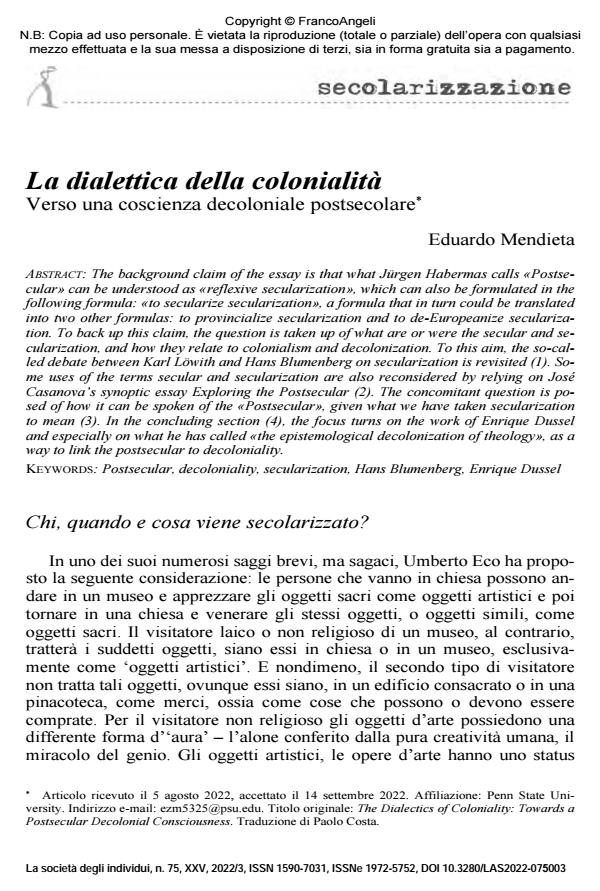La dialettica della colonialità. Verso una coscienza decoloniale postsecolare
Journal title SOCIETÀ DEGLI INDIVIDUI (LA)
Author/s Eduardo Mendieta
Publishing Year 2023 Issue 2022/75
Language Italian Pages 23 P. 22-44 File size 145 KB
DOI 10.3280/LAS2022-075003
DOI is like a bar code for intellectual property: to have more infomation
click here
Below, you can see the article first page
If you want to buy this article in PDF format, you can do it, following the instructions to buy download credits

FrancoAngeli is member of Publishers International Linking Association, Inc (PILA), a not-for-profit association which run the CrossRef service enabling links to and from online scholarly content.
The background claim of the essay is that what Jürgen Habermas calls «Postsecular» can be understood as «reflexive secularization», which can also be formulated in the following formula: «to secularize secularization», a formula that in turn could be translated into two other formulas: to provincialize secularization and to de-Europeanize seculariza¬tion. To back up this claim, the question is taken up of what are or were the secular and se¬cularization, and how they relate to colonialism and decolonization. To this aim, the so-cal¬led debate between Karl Löwith and Hans Blumenberg on secularization is revisited (1). So¬me uses of the terms secular and secularization are also reconsidered by relying on José Casanova’s synoptic essay Exploring the Postsecular (2). The concomitant question is posed of how it can be spoken of the «Postsecular», given what we have taken secularization to mean (3). In the concluding section (4), the focus turns on the work of Enrique Dussel and especially on what he has called «the epistemological decolonization of theology», as a way to link the postsecular to decoloniality.
Keywords: Postsecular, decoloniality, secularization, Hans Blumenberg, Enrique Dussel
Eduardo Mendieta, La dialettica della colonialità. Verso una coscienza decoloniale postsecolare in "SOCIETÀ DEGLI INDIVIDUI (LA)" 75/2022, pp 22-44, DOI: 10.3280/LAS2022-075003